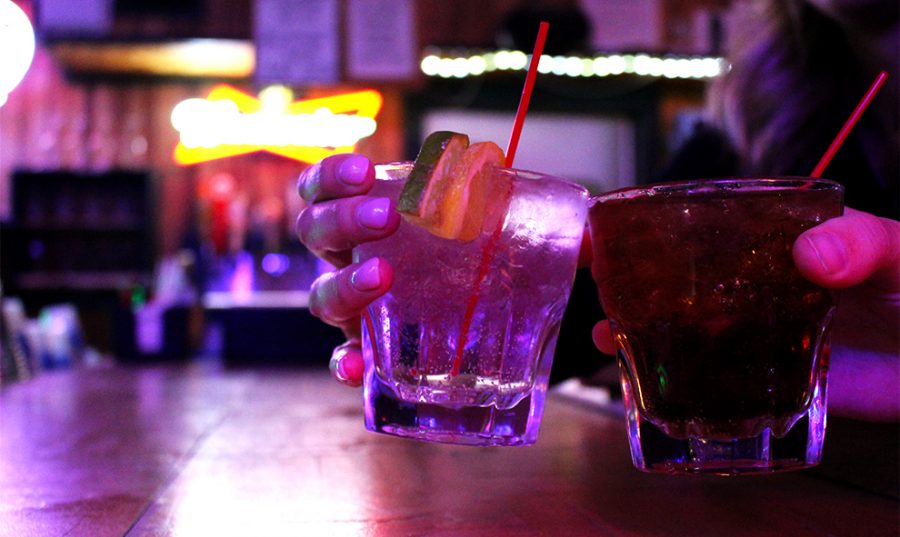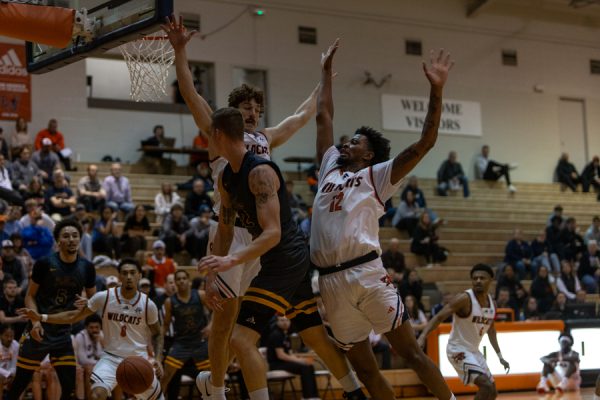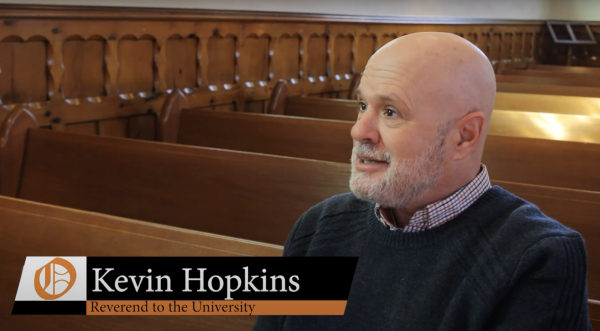Bartenders trained to assist in bad situations
Seniors Abby Kaff and Bailey Gibson enjoy some drinks at Baldwin City’s local bar. The Salt Mine is located off of highway 56.
“I’ll take an angel shot.”
Just over a year ago, if you were to ask bartenders for this shot, you would be requesting something other than a drink. You would be asking for the bar staff to walk you to your car because you felt uncomfortable with the situation you were in.
Since this time, pubs and bars have been doing more to educate their employees on the safety needed with the rising statistics on alcohol and sexual assault or abuse. Recently close to home, this has begun to take shape, as The University Daily Kansan recently reported on multiple Lawrence bars that were utilizing a free training program provided by the Sexual Trauma and Abuse Care Center.
Kelsey Hunter, a prevention specialist at the Care Center, has been involved in the recent reestablishment of the Baker Rallies Against Violence (BRäV) campus organization. Baker has worked closely with the Lawrence Sexual Trauma and Abuse Care Center to help educate students and the Baldwin City community on many of these same dangers.
As bars continue to become frequently visited businesses by college students, this education is becoming more important than ever. As the Daily Kansan article notes, alcohol alone does not cause sexual assault, but rather, it is used as a tool to inspire potentially harmful situations.
Bars all around the nation should begin to utilize this opportunity to educate themselves on their potential roles as bystanders. No matter what their connection is to the customers who fill their locations, it is vital that bars lead the way in ensuring safety.
Choosing to educate their employees on the dangers and signs of sexual assault can do more for a community than many may even understand. By being a leader in assault prevention, bars can inspire other community members and businesses to educate their own employees on bystander intervention.
As someone who has taken the Baker interterm course on how to educate others on sexual assault and abuse, I can verify the impact of education.
Let’s face it, we often find ourselves ignorant to the fact that bystander intervention is a vital part of removing sexual harassment from our culture. Instead, we must open up our minds and motivate our community to take advantage of these free educational opportunities, as they will be the changes that reduce dangerous actions. They will be the ideas that reduce the ordering of the “angel shot.”











